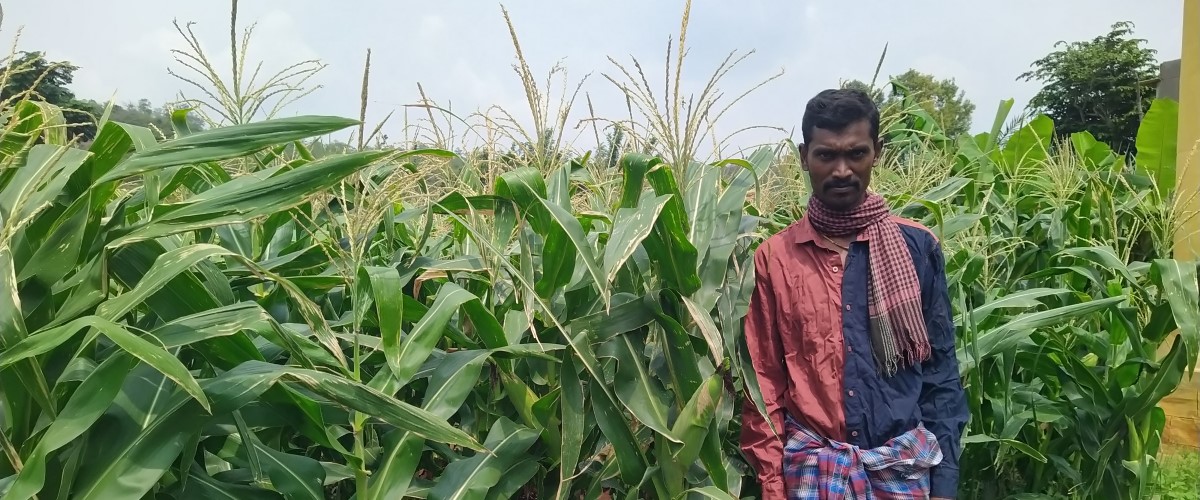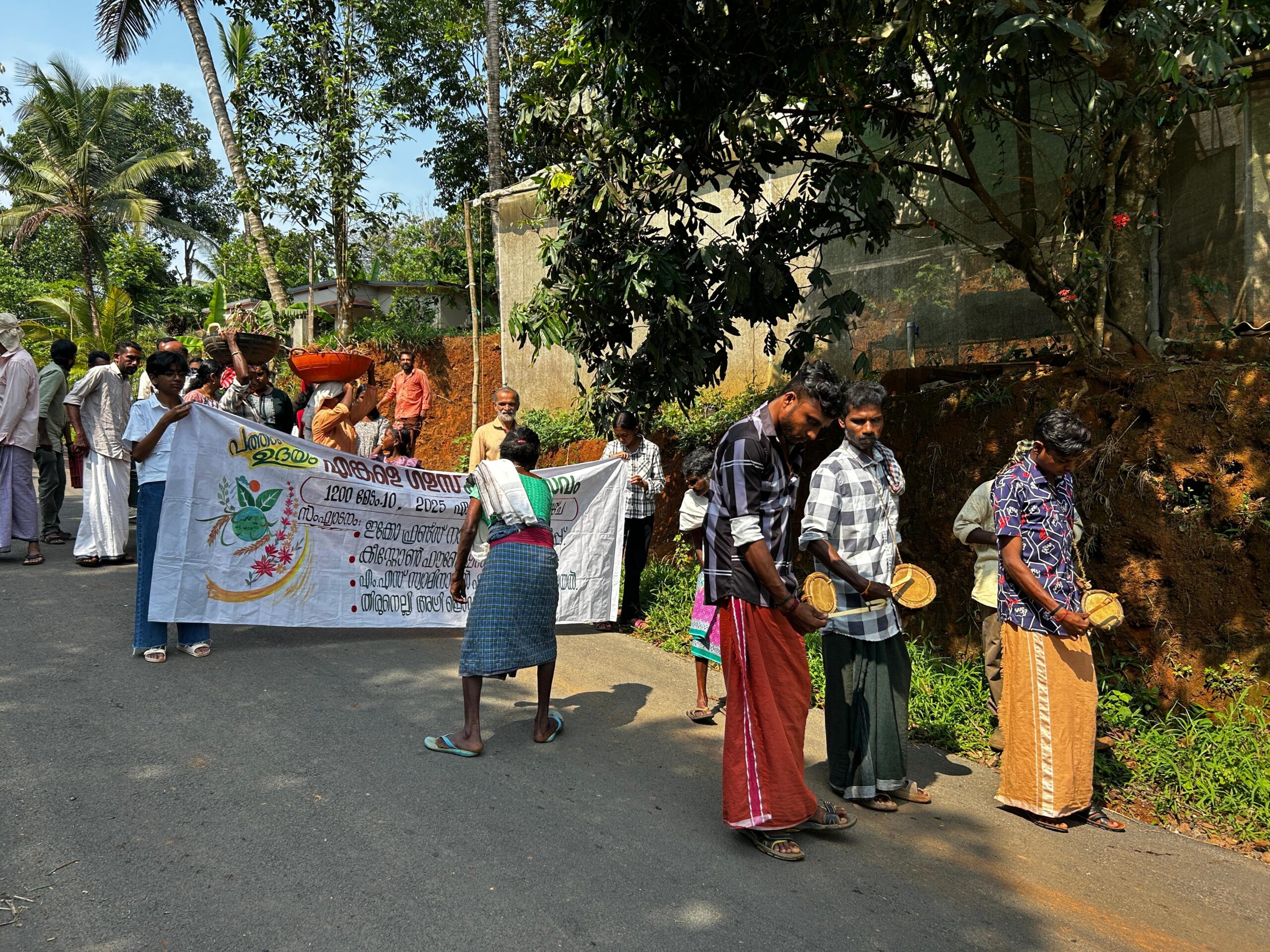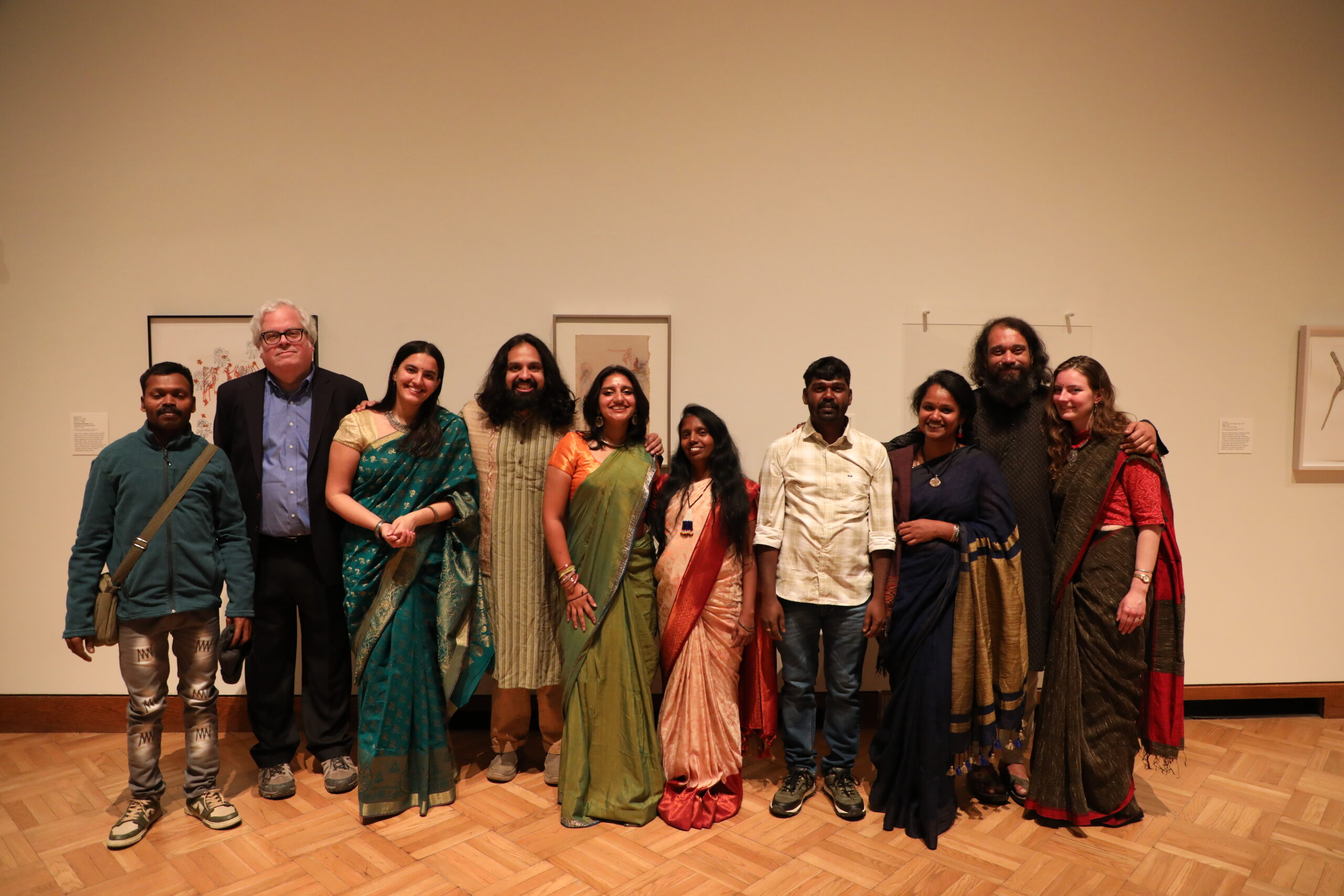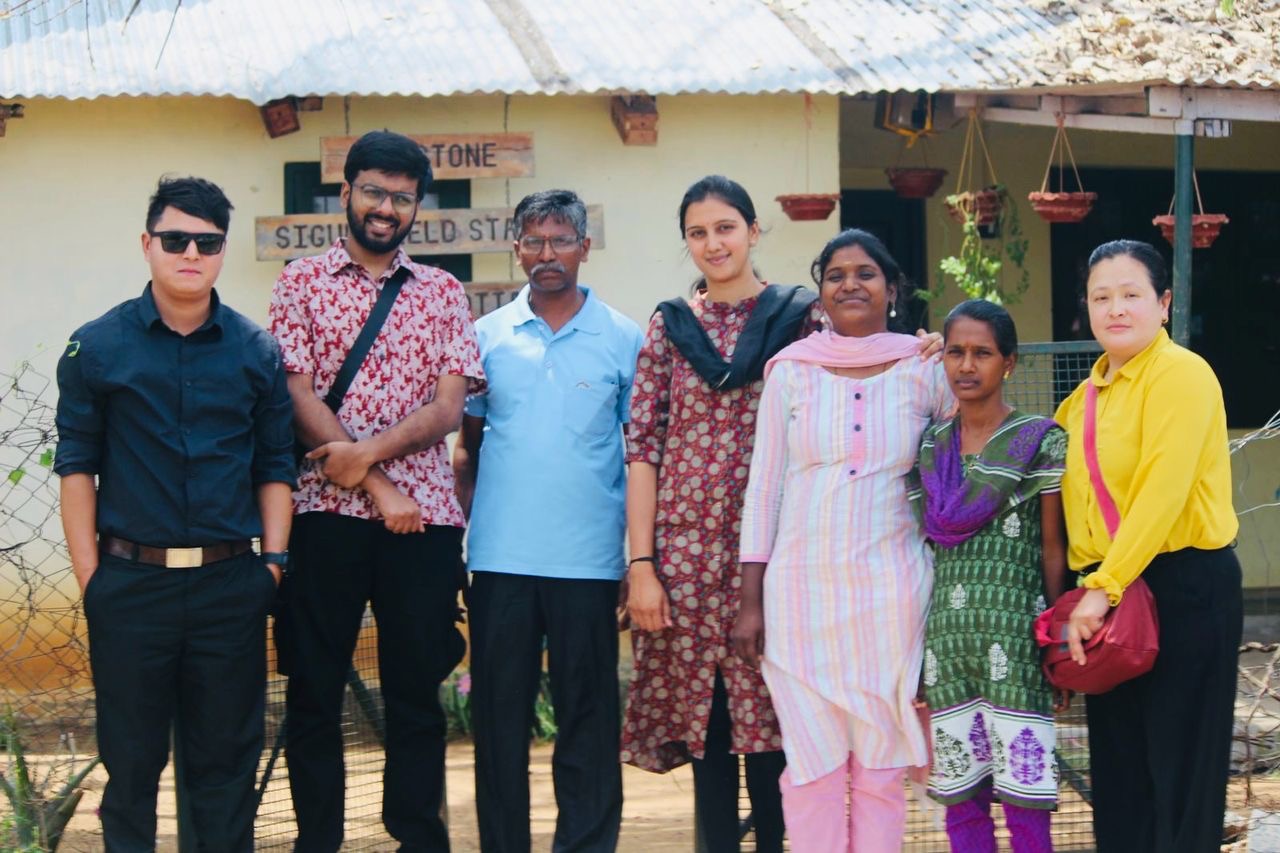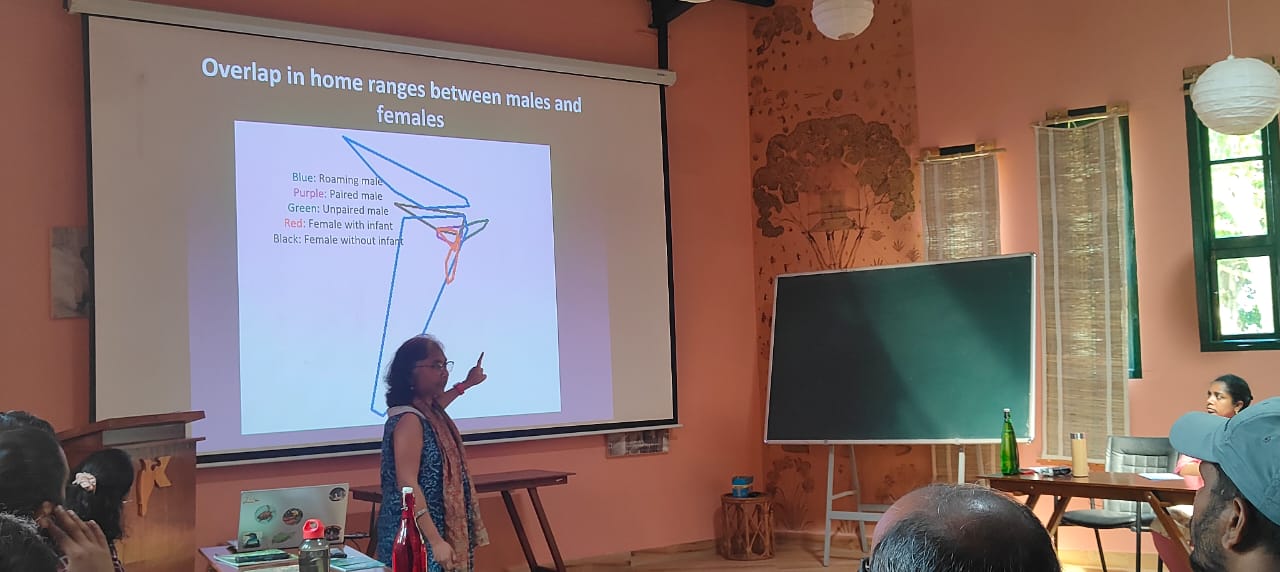Madeva is a 40 year old man from the Soliga community, and resides in Sebinakobe village in Nokkanahalli gram panchayat, Hanur taluk in Chamarajanagar district of Karnataka. He has two sons and engages in several different forms of livelihood, including farming, priesthood, pastoralism and beekeeping of several types of bees.
Agriculture is his major source of livelihood. He has obtained Individual Forest Rights for a three acre farm that is largely rain-fed, where he harvests raagi, maize, avare, hucchellu and mustard. While he chooses not to sell his raagi harvest in the market, he sells the remaining four crops in the market. Last year, he made a profit of INR 30,000 from his maize harvest alone. He shares that while last year witnessed a good amount of rain, this year looked different, with his farm facing a drought. This increased the selling price of maize, with 100 kg. of maize bringing him INR 2,500.
He shares stories of the various other roles he has taken on than farming. Not far from his farm is situated a Kembeshwara temple, where he works as a priest, performing a weekly pooja every Saturday. He also takes care of his ten goats and six cows, which he (taking turns with his wife) walks into the forest for grazing every day. He earns a sum of INR 6,000-10,000 from the goats annually, and INR 8,000 from the milk of the cows. He keeps the cattle in separate sheds that he maintains, feeding them fodder from either the forest or his farms, whichever offers more abundance that day.
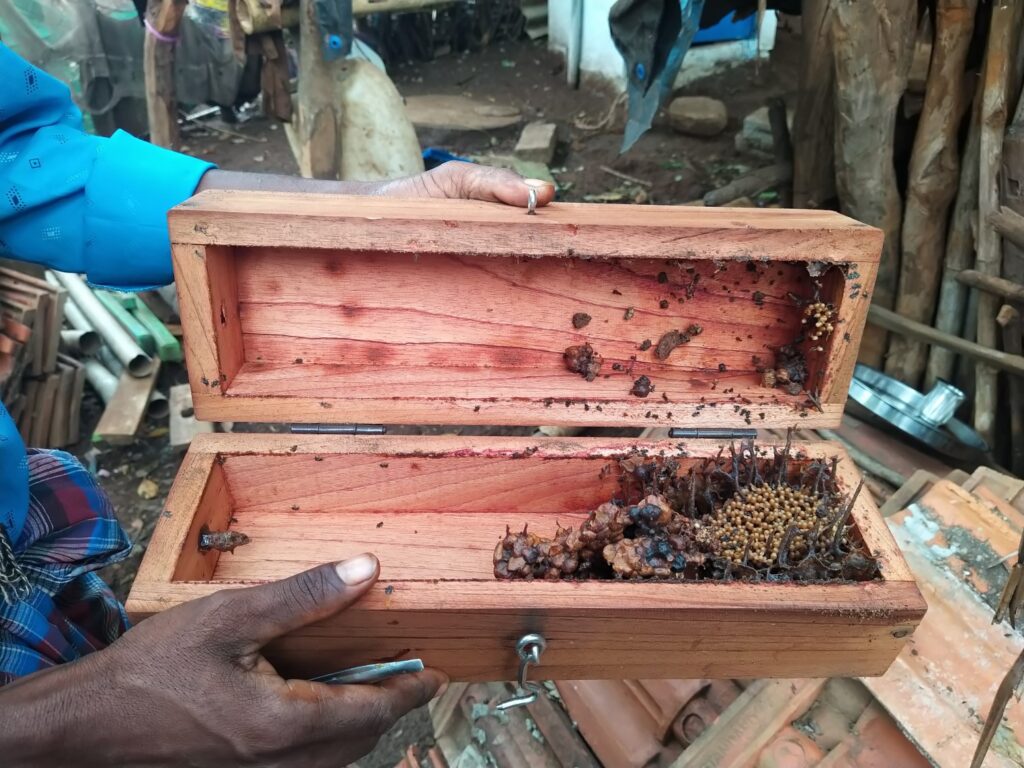
Being a multi-tasker, Madeva is also a modest beekeeper, handling three working bee boxes that host Apis cerana bees. He makes INR 2,400 from eight kilos of honey from the boxes, collected twice a year. He is accomplished in maintaining the bees well, and is enthusiastic about passing on his knowledge about bees and honey to other beekeepers in his village. He keeps these boxes in a small coffee plantation that is pollinated by bees.
Sebinakobe village is located in a dry deciduous forest, which is an ideal habitat for dammer bees. Some populations have built colonies in some trees species including Premna tomentosa (locally known as Eeje), Tectona grandis (Theku), Soymida febrifuga (Some), Ficus benghalensis (Aala) and Chloroxylon swietenia (Urugilu) and others. Madeva collects dammer honey from the wild. While he saves some for his family to consume, he attempts to sell the rest. Despite the high medicinal value offered by the honey, it is not selling well. Keystone gave Madeva 15 dammer bee boxes to promote his beekeeping interest. He handed seven of these boxes to beekeepers from the neighbouring Haavinamoole village. All the boxes are being maintained well since May 2023, and his income from this activity has been on the incline since using the boxes.
Madeva lives in a small house that was built with the support of a gram panchayat housing scheme. His income from beekeeping is able to support his son’s education and agricultural efforts.

